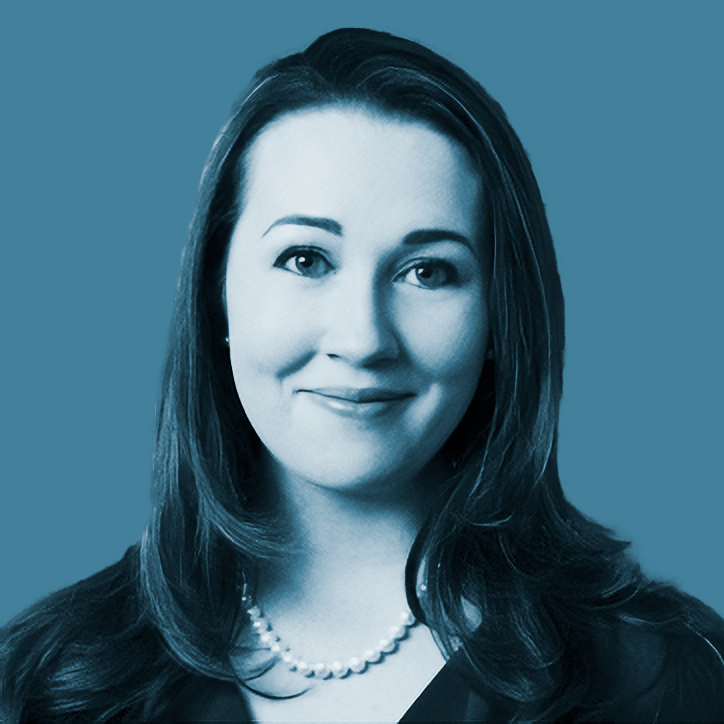JD Mortgage®: Special Home Loans for Lawyers
Wouldn’t it be something if a bank recognized that the vast majority of lawyers, while graduating law school with high student loan debt, actually represent an underserved market of borrowers unlikely to default on their mortgage along with solid career earning potential?
Every year over 33,000 lawyers graduate from law school. These new graduates have little in the way of assets other than a juris doctor. Unable to pull together a traditional down payment and often with six figures of student loan debt, these lawyers struggle to get qualified for a mortgage under standard underwriting principles.
Enter the JD Mortgage, a service we’ve put together to connect you with mortgage products established by a few banks that recognize the opportunity to establish a relationship with a young lawyer looking to buy a house. The JD Mortgage is a way to get a special mortgage for lawyers (anyone with a juris doctor). But before we discuss the details, first a little history.
History of Physician Mortgages (Precursor to our JD Mortgage)
Not that long ago, Bank of America recognized that thousands of cash-poor doctors were graduating each year with pent-up demand to purchase homes despite not having any savings. These doctors, as a group, were unlikely to default on their mortgages and made for great long-term customers, since they often went on to purchase additional financial services over their lifetimes.
Using the standard mortgage criteria, these doctors would be turned away since they’re heavily in debt and have no history of earning big paychecks. A light bulb went off. The bank decided that if they could entice these customers with a no-money down mortgage, even if the mortgage had slightly higher interest rates and fees, the doctors would likely become customers for life and make the bank a ton of money in the process. Thus the concept of a “doctor mortgage” was born. Bank of America started it, but many other banks have begun to offer the doctor mortgage as well.
But what about lawyers? Surely they default on their loans at a lower rate than the national average (they do). Surely many of them aren’t all that financially sophisticated and are willing to pay slightly higher fees and interest for access to a no money down loan (they are). Given these similarities between doctors and lawyers, it seems obvious that banks would be rushing to offer a similar program to the JDs of the world.
Most lawyers are surprised when I tell them about the doctor mortgage.
They’re even more surprised when I tell them that a similar program exists for JDs.
While not nearly as developed as the doctor mortgage program, there are banks that are willing to lend to you based on your JD credentials alone, and they’ll do so with little or no money down. And while you may pay a slightly higher interest rate and fees, you won’t be paying PMI. You can even refinance out of your existing mortgage if you are paying PMI.
What is the JD Mortgage® service?
Our JD Mortgage service is a way to find a mortgage for lawyers that typically has these features:
- Requires little or no money down (0-10%)
- Doesn’t require the borrower to purchase mortgage insurance
- May require the lawyer to open a bank account at the bank that is providing the mortgage
- Has the same interest rate regardless of whether the loan is above or below the “jumbo loan” limit
- May allow you to use gift money for the (i) down payment, (ii) required reserves or (iii) closing costs
- Requires cash reserves equivalent to a few months of principal, interest, taxes, and insurance (PITI), a reasonably good credit score, and a debt-to-income ratio of less than 38%
- Sometimes doesn’t calculate student loans toward the loan-to-income ratio or is willing to use a modified payment in the calculation similar to Income Based Repayment / REPAYE calculation
What Other Options Does a Lawyer Have?
- Conventional 20% down mortgage. Putting down 20% still usually gets you the best deal. You’ll have to prove your earnings and, of course, actually save up the 20%, but if you do you’ll likely be rewarded with the lowest rates and lowest fees. The 20% down mortgage also typically has the best options, such as the 30-year fixed, 15-year fixed, Adjustable Rate Mortgages (ARMs), etc. If you’re in a big city, you might find it a challenge to save up such a large sum. Another downside is that the down payment funds won’t be available to invest elsewhere.
- Conventional mortgage with less than 20% down. If you qualify for a mortgage with less than 20% down, you can expect the loan to have higher rates and fees than a conventional mortgage with 20% down. Additionally, most banks will require you to purchase private mortgage insurance (PMI). PMI is only beneficial for the banks. It’s an insurance product where you pay the premiums and the banks are the beneficiary if you’re unable to make payments on your mortgage. It’s rare to find a conventional mortgage lender that will let you put 0% down, but 5% and 10% are more common.
- 80/10/10 or 80/15/5 loans. Sometimes you’ll find a creative loan officer or broker that can put together a combination of loans to get you to the standard 20% down / 80% financed structure. This usually involves an 80% loan at a slightly higher rate than a conventional mortgage, plus either a 10% or 15% second loan with a much higher interest rate and then either 10% or 5% down. The upside is that you’ll avoid PMI but you’ll replace it with higher interest payments and potentially more fees.
- FHA Loan. An FHA loan is a mortgage that’s insured by the Federal Housing Administration (FHA). They allow you to purchase with as little as 3.5% down, however there are several caveats. First, you’ll typically pay higher interest rates and fees, including the upfront mortgage insurance premium of 1.75% of the home loan (regardless of credit score). There will also be a mortgage insurance premium payment figured into your monthly payment. Finally, the Federal Housing Authority sets maximum mortgage limits for FHA loans that vary by state and county. This can be particularly problematic in the cities where many lawyers work (such as New York and San Francisco) where housing prices have skyrocketed. To find out the FHA mortgage limits in your area, click here (you don’t need to fill out each field, simply pick your state and county).
- VA Loan. If you qualify for VA benefits, you can also look into getting a VA Loan. One benefit of VA Loans is that you can get them with no money down. However, you’ll pay higher fees if you’re unable to come up with any cash down payment (currently 2.15% if it’s your first VA loan and you put no money down).
How Do JD Mortgage Rates and Fees Compare?
If you get a home loan through JD Mortgage, you’re going to have a higher interest rate than most of the other conventional options (which shouldn’t be a surprise since you’re putting less money down). When it comes to fees, it’s a little harder to compare the JD Mortgage home loans with a conventional mortgage with less than 20% down.
The benefit of using JD Mortgage is that there’s no PMI. The downside is that you’ll be paying a higher interest rate and possibly some additional fees. It’s often hard to tell if you’re better off paying mortgage insurance or the higher rate/fees that come with a mortgage found via JD Mortgage.
If you do some rate shopping, you may be surprised by how much more interest you’ll pay with the lenders we find through JD Mortgage. Using an average credit score between 720-739 and putting 20% down on an $800,000 mortgage, I found a rate of 4.069% for a 30-year fixed mortgage to purchase a house in my area. If you have excellent credit, that rate goes down to 3.891%. Meanwhile, a rate found via JD Mortgage for a 30-year fixed could cost you 4.125% with 0.5% points. It may not seem like much, but over time you’ll pay substantially more interest if you pursue a mortgage found via JD Mortgage rather than a conventional mortgage with 20% down. Of course this ignores the opportunity cost of tying your money up in a down payment, which is a factor discussed below.
Should I Use JD Mortgage?
There’s no clear answer to this question. Personally, I’m a fan of renting during the early stages of your career, particularly if you’re in a big city. Renting gives you flexibility to change neighborhoods or cities with very little frictional cost, while also insulating you from dealing with the headaches and hassles of owning your own home (let the landlord fix the toilets, you’re going to be busy figuring out how to be a lawyer).
Plus, it takes around five years to break even a home anyway. Check out the New York Times Buy vs Rent Calculator to see what makes sense for you.
The housing market isn’t predictable. If you think you might need to move in 3-6 years, you could make a lot of money on a house purchase (those lawyers that bought in 2011) or you could lose your shirt (those lawyers that bought in 2006). The leverage of home ownership works both ways, so you’ll need to prepare yourself either way.
If you do decide to purchase an apartment, condo or house, consider whether the conventional 20% down mortgage is right for you. You’ll save considerably on interest and fees (guaranteed savings) and minimize your exposure to additional stock market risk (e.g. if you have the money for a down payment but choose to invest it in the stock market and take out a no money down loan).
On the other hand, if you’re going to buy a home and you can’t or don’t want to put down the 20% to qualify for a traditional mortgage, a mortgage found via JD Mortgage is a decent option and at least as good as the other choices you have for a non-20% down conventional mortgage.
How Much Should I Borrow?
Often I’ll receive an email or comment from someone who has run the numbers and determined that it’s better to borrow as much money as possible. They calculate that if they invest the down payment in the market they’ll get a better rate of return than they would get if they reduced their mortgage balance. This is the benefit of margin investing. It’s great when it’s working. It doesn’t work so well if your investments crater and your lender wants to get paid.
Example. Let’s say you’re purchasing a $500,000 home. If you put 20% down, you’ll borrow $400,000 and bring $100,000 of cash at closing. If the interest rate on the mortgage is 4.0% and for 30 years, you’ve “saved” $71,867 in interest you’ll avoid paying on the $100,000 you brought in cash. Of course, there’s also an opportunity cost because you can’t invest that money elsewhere. If you invested in the market and received a 8% return, you’ll end up with $164,160 in capital gains (on top of the $100K).
So why not always choose to get the $164,160 in capital gains and pay the $71,867 in interest since you’ll come out so far ahead?
First, saving the $71,876 in interest is a guaranteed return. The $164,160 is not guaranteed. There is no 100% certainty that you’ll achieve that 8% return and a real risk that you could lose money. If you end up with 2% returns over the next 30 years, you’d obviously have been better off putting that money in the mortgage.
Second, you must actually keep that $100,000 invested in the stock market for 30 years to achieve these results. It’s pretty easy to spend money or withdraw it for a “one-time” unexpected expense. If you do that, you’ll ruin the math that makes the margin lending such a good deal. If the money is in your house, it’s much harder to pull it out to buy a Tesla.
Third, there’s a real psychological benefit to being debt free. Sure, intellectually you understand that you’re in the same place by investing the $100,000, but with the bigger mortgage you’ll have a higher monthly payment, which might impact your feelings about job changes, how much you can save monthly, etc. Feeling like you have to keep a job to afford your monthly payments is no way for readers of this site to live.
Fourth, there’s no logical end to this thought process. If you should finance as much house as possible, you should also finance every other purchase in your life and take advantage of the arbitrage. Why stop at financing the house when you can also finance a car, a vacation or a new iPhone? Eventually it has to stop at some point. It’s an arbitrary decision where you draw the line.
Fifth, flip the question around. If your lender allowed you to borrow an additional $100,000 above the purchase price for the house, would you take the larger loan and invest the $100,000 in the stock market?
Are physicians, dentists and other medical doctors eligible for JD Mortgage?
We get questions from time-to-time about whether our JD Mortgage program is open to physicians, dentists and other medical doctors.
The short answer is: Yes.
The longer answer is that each of our partner lenders also has a corresponding doctor mortgage program. So, if you’re a medical doctor or other professional and you’re interested in seeing your mortgage rate, check your rates using the link at the top of the page with confidence that you’ll be eligible too.
We’ve put together an overview of the best national physician loans. Just select your state to see which physician mortgage lenders are available to you.
Can I use a professional mortgage to build a new house?
With housing in short supply across the country, many people are turning to building new houses as a way deal with the lack of housing inventory.
Building a new house takes considerable time and patience but the end result is that you have the exact house you want. We’ve seen an uptick in interest across the country from people looking to combine these professional mortgages with construction projects. To help you find the right product for you, we put together a 50 State Guide to Construction Loans.
Some of our professional mortgage partners will let you combine the benefits of a professional mortgage with a construction loan but you’ll need to contact each lender separately (after you match using our form) to confirm whether or not they can offer you a construction loan.
If you have any questions about these programs, use the chat button to contact us directly and we’ll be happy to answer your question, usually within minutes if we’re around and not helping someone else.

Joshua Holt is a licensed mortgage loan originator (NMLS #2306824) and founder of Biglaw Investor. His mortgage expertise lies in the areas of professional mortgage loans, particularly for lawyers, doctors and other high-income professionals. Prior to Biglaw Investor, Josh practiced private equity mergers & acquisition law for one of the largest law firms in the country.










